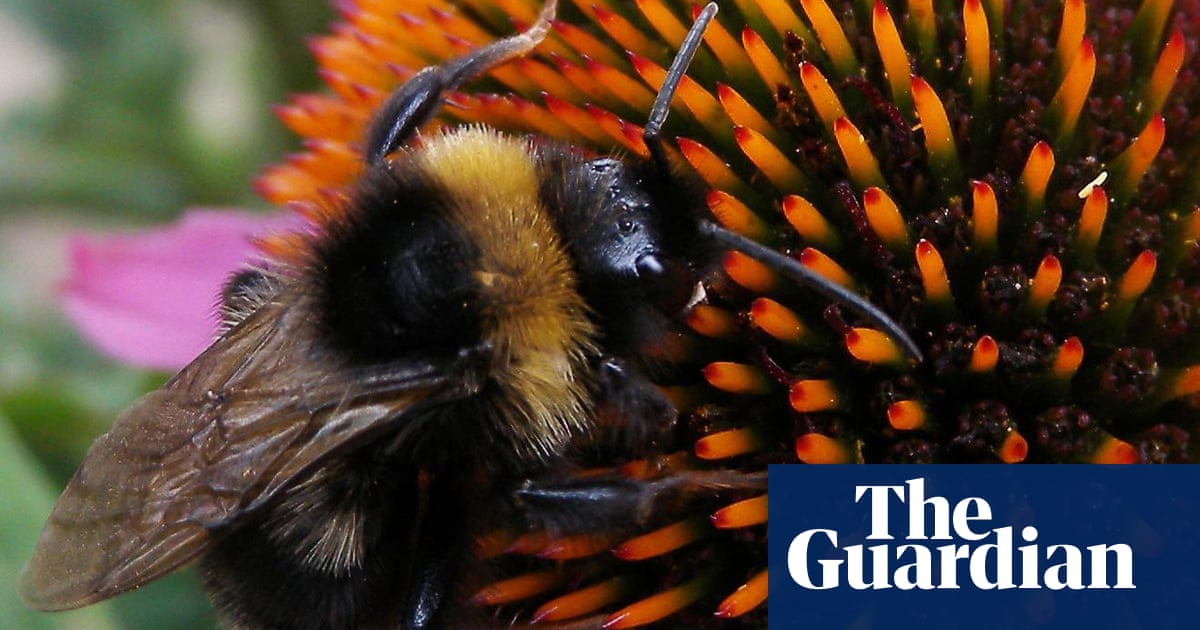
UK ministers are considering allowing the use of a bee-killing pesticide next year despite promising during the election to ban it.
Neonicotinoids are banned in the EU because they are toxic to bees but have been authorised for use every year in the UK since 2021.
During this summer’s election campaign, Keir Starmer said: “The new government will ban neonicotinoid pesticides imidacloprid, clothianidin and thiamethoxam due to their impact on bees.”
British Sugar and the National Farmers’ Union (NFU) have applied to be allowed to use Cruiser SB, a neonicotinoid that contains thiamethoxam, on sugar beet. It combats a plant disease known as virus yellows by killing the aphid that spreads it.
However, this powerful pesticide poisons bees by destroying their nervous systems. Prof Dave Goulson, a bee expert at the University of Sussex, has warned that one teaspoon of the chemical is enough to kill 1.25 billion honeybees.
Environment groups have urged the Labour government to stick to its promise and refuse the application.
Craig Bennett, the chief executive of The Wildlife Trusts, said: “These deadly pesticides must not be used any more. It’s outrageous that British Sugar has applied for a fifth year to use bee-killing chemicals, despite an industry commitment to end reliance in 2023.
“We were pleased the UK government committed to ban neonicotinoids during its election campaign, and trust that promise will be kept. Policymakers must follow the science here and refuse this application. Approval would be a betrayal of farmers working hard to produce food sustainably and devastating for wildlife”
A spokesperson for the Department for Environment, Food and Rural Affairs (Defra): “This government has been clear that we will change existing policies to ban the use of neonicotinoid pesticides that threaten bees and other vital pollinators.
“Decisions on emergency authorisation applications for use of neonicotinoids on sugar beet for 2025 will be taken in line with legal requirements.”
The former environment secretary Michael Gove promised in 2017 that ministers would use Brexit to stop the use of the pesticide, which can destroy bee populations.
Instead, the EU banned all emergency authorisations of neonicotinoid pesticides, while since 2021 the UK government has allowed the emergency use of thiomethoxam every year.
Defra is under investigation by the watchdog the Office for Environmental Protection after the previous Conservative government authorised the use of the pesticide for this year.
Ministers did not follow the advice of their own scientists last year when allowing the use. Government scientific advisers said in September they were not able to support an authorisation for Cruiser SB, because the “potential adverse effects to honeybees and other pollinators outweigh the likely benefits”.
Labour sources claim they legally have to consider the emergency use, but experts suggest they are able to reject it because the rules say they can ban the pesticide based on advice from scientists.
Craig Macadam, the conservation director at Buglife, said: “It is shocking that pesticide derogations, reserved for emergency use, are routinely used by the NFU and British Sugar year after year. We urge the government to make good on its promise to stop this abuse of the derogation system and properly protect the environment from harmful chemicals.
“The government must take the advice from its independent expert committee on pesticides who recommend against the use of thiamethoxam due to its potential adverse effects on pollinators.”
Farming groups say the use of the pesticide is crucial to the British food industry because sugar beet is one of the most profitable crops and virus yellows can destroy fields of it. However, others argue that it is not important for food security because sugar is not a vital crop.
In a joint statement, the chair of the NFU sugar board, Michael Sly, and British Sugar’s agriculture director, Daniel Green, said: “The British sugar beet crop continues to be threatened by virus yellows disease. In recent years, the disease has caused crop losses of up to 80%. If authorisation is granted, the seed treatment will only be used if a specified threshold, set each year by Defra, is met.
“Growers must also follow a strict stewardship programme to ensure best practice, and that the conditions of the emergency authorisation are met on farms. In addition, the industry has jointly funded residue monitoring over the past couple of years.”












